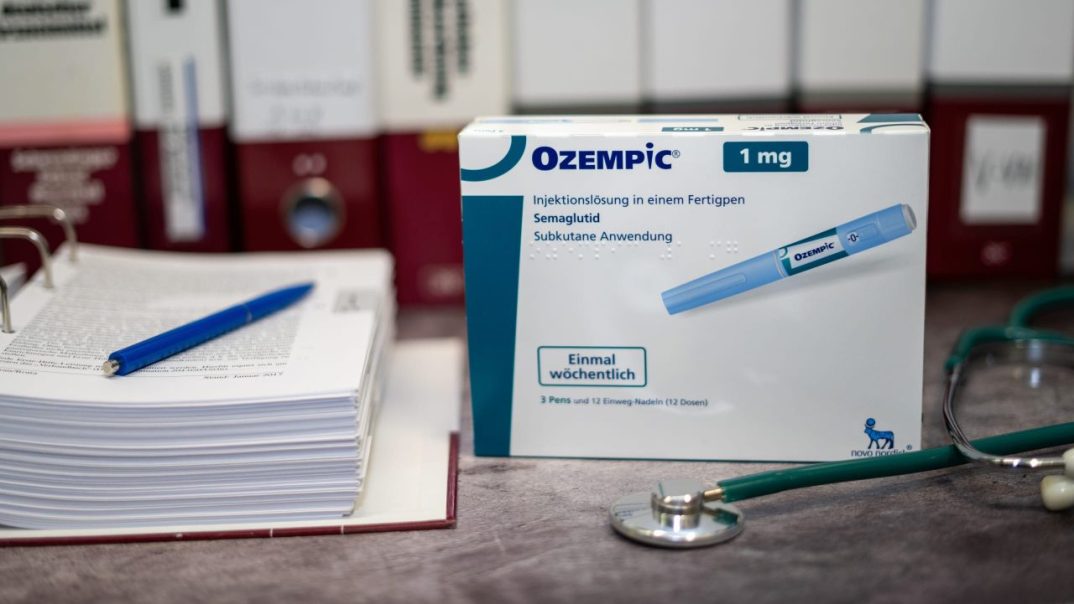Here’s how many American adults have taken Ozempic or a similar drug for weight loss
Throughout the past year, pharmaceutical companies have scrambled to meet the increasing demand and the Food and Drug Administration has reported shortages of the GLP-1 drugs Ozempic, Wegovy, and Mounjaro at different dosages.

A new survey shines a light on just how many American adults have used a GLP-1 drug such as Ozempic or Mounjaro.
CNN reported that a nationwide KFF poll conducted during the last week of April among a representative sample of 1,500 adults revealed that roughly 1 in 8 adults had used one of the popular drugs at some point in their lives. The survey concluded that half of the nation’s adults, or over 15 million people, currently use a prescription.
The KFF survey found that around 80% of respondents said they obtained a GLP-1 medication or prescription from a specialist or primary care physician. It said that 10% claimed to have gotten them from an aesthetic medical facility or medical spa, and 11% said they received them from an internet source.
Throughout the past year, as pharmaceutical companies have scrambled to meet the rapidly increasing demand, the Food and Drug Administration has reported shortages of the GLP-1 drugs Ozempic, Wegovy, and Mounjaro at different dosages.
The majority of adults have used the medications to treat chronic illnesses like diabetes or heart disease, according to the latest poll. Of the responders, over 40% had diabetes, and over 25% had heart disease. However, roughly two out of five people consume GLP-1 medications solely to lose weight.
Recommended Stories
The FDA greenlit Ozempic and Mounjaro to treat type 2 diabetes in 2017 and 2022, respectively. Although neither of the drugs is approved for weight loss, doctors frequently prescribe them off-label. Mounjaro utilizes tirzepatide, approved for weight loss in 2023 under the brand name Zepbound, whereas Wegovy, which was approved in 2021 for the treatment of obesity, contains semaglutide, the same primary ingredient as Ozempic.
According to the KFF survey, people between 50 and 64 years old were most likely to have used GLP-1 medications, whereas younger adults were more likely to have used them exclusively for weight loss.
Eli Lilly, the manufacturer behind Zepbound and Mounjaro, has taken jabs at those — including Hollywood celebrities — who use their medications for cosmetic purposes, theGrio previously reported.
CEO David Ricks explained that pharmaceutical companies produced the drugs for people with severe health conditions, not “just to have someone who’s famous look a little bit better.”
According to CNN, Medicare does not cover prescription weight-reduction medications, and the KFF poll found that only 1% of seniors have taken a GLP-1 medication exclusively for weight loss. However, most adults — over 60% — believe Medicare policy ought to be modified to cover these medications when prescribed for weight loss.
The KFF research revealed that most adults who have taken GLP-1 medications stated it was difficult to afford them, regardless of insurance coverage.
Sen. Bernie Sanders launched a probe last month into the “outrageously high prices” manufacturers charge for GLP-1 medications, which can cost over $1,000 for a month’s supply.
While he acknowledged that scientists at Novo Nordisk – which produces Wegovy – deserve “great credit” for developing the potentially game-changing drugs that can benefit millions of Americans struggling with type 2 diabetes and obesity, the senator asserted they will not do any good if patients cannot afford them.
“In my view, the American people should not have to pay up to $1,349 a month for prescription drugs that cost less than $5 to manufacture and can be purchased at a fraction of this price in other developed countries,” said Sanders in a statement.
“Unfortunately, Novo Nordisk’s pricing has turned drugs that could improve people’s lives into luxury goods, all while Novo Nordisk made over $12 billion in profits last year — up 76 percent from 2021,” he added. “That is unacceptable.”
CNN reported that exorbitant costs and restricted availability could lead individuals to seek substitutes for the highly desired medications. In the previous year, the FDA issued a warning on compounded forms of semaglutide that combine, mix, or modify components in ways that are not authorized or regulated.
The FDA, citing reports of adverse events in people who used compounded semaglutide, said, “Patients should only obtain drugs containing semaglutide with a prescription from a licensed health care provider and only obtain medicines from state-licensed pharmacies or outsourcing facilities registered” with the agency.








